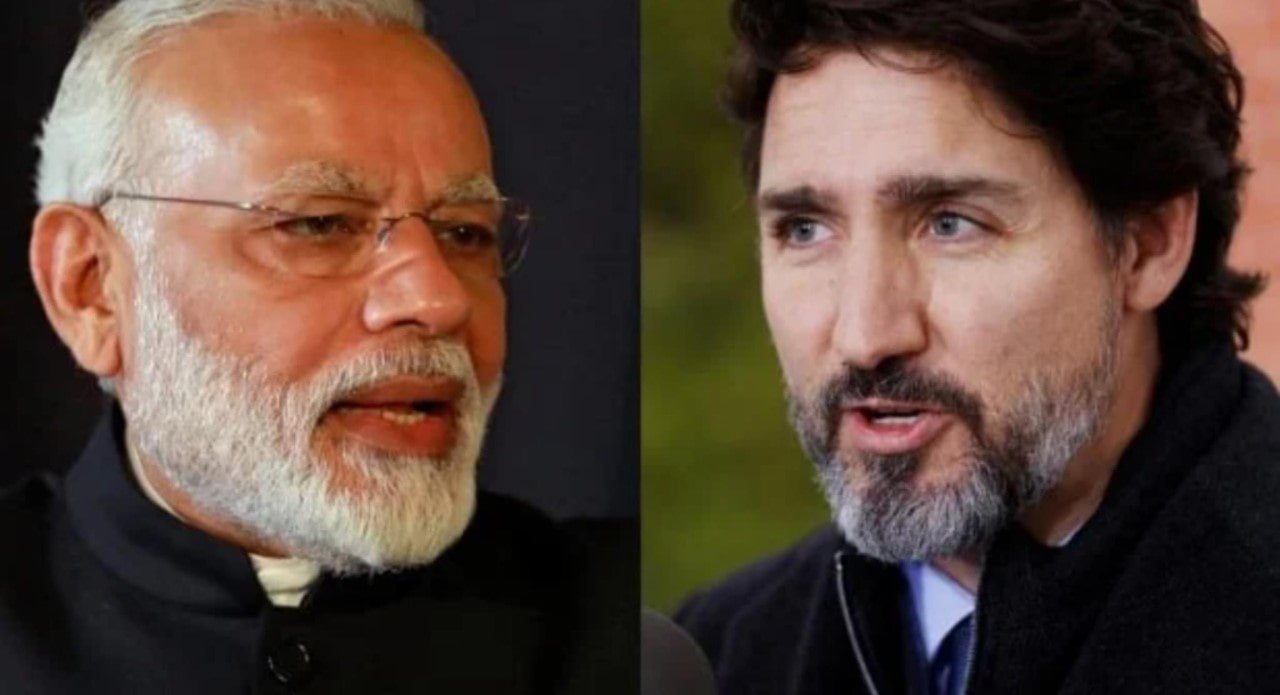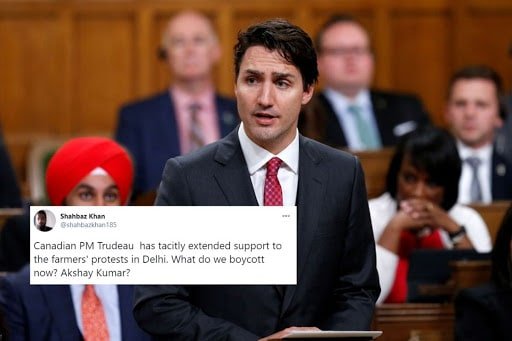DESIBUZZCanada
Events Listings
Dummy Post

International Day Of Yoga To Be Virtually Celebrated Saturday At 4pm

CANCELLED: Coronavirus Fears Kills Surrey’s Vaisakhi Day Parade

ADVERTISE WITH US: DESIBUZZCanada Is The Most Read South Asian Publication Online

SURREY LIBRARIES: Get Technology Help At Surrey Libraries

WALLY OPPAL: Surrey Police Transition Update On Feb. 26

GONE ARE THE DAYS - Feature Documentary Trailer

Technology Help At Surrey Libraries

Birding Walks

Plea Poetry/short Story : Youth Contest

International Folk Dancing Drop-in Sessions
Trudeau And Modi Talk Vaccines, Farmers’ Protest And Importance Of Resolving Issues Through Dialogue
- February 13, 2021

The Serum Institute of India has a contract with AstraZeneca to produce doses of its vaccine, to “supply India but also a large number of countries around the world,” and Health Canada is currently reviewing the facilities—described by AstraZeneca as the world’s largest vaccine manufacturer—as the health agency considers approving the vaccine developed by AstraZeneca and Oxford University for use in Canada. Critics say Canada must thoroughly inspect India’s production facilities as they may not be up to par with western facilities. Two workers recently died after a fire at one of India’s facilities producing the vaccine. There are other quality control factors to take into account before giving the green light to vaccine supply from India.
By DESIBUZZCanada Staff
OTTAWA - Prime Minister Justin Trudeau spoke with the India’s Narendra Modi on Wednesday, discussing India’s role in vaccine production as well as the ongoing farmers’ protests with Trudeau expressing Canada and India’s commitment to democratic principles and the importance of resolving issues through dialogue.
Trudeau has been vocal in his support for the farmers’ right to protest and he supports their plight. In December, Trudeau defended farmers’ right to peacefully protest in response to new laws passed by Modi’s government.
The two leaders had an exchange on their respective efforts to fight the COVID-19 pandemic, protect the health and safety of their people, and provide economic support for their citizens.

Trudeau and Modi spoke about India's significant efforts in promoting vaccine production and supply, which have provided vital support to countries around the world. The two leaders agreed to work together on access to vaccines. The leaders also recognized the need for continued global coordination to respond to the pandemic and to promote recovery.
The two prime ministers reaffirmed their common interests in a free and open Indo-Pacific, and the importance of working together on global challenges such as climate change, strengthening global trade, and reinforcing the rules-based international order.
The leaders underscored the importance of the Canada-India strategic partnership anchored in shared values, strong people-to-people ties, and growing bilateral economic cooperation. The two leaders looked forward to working together at the G7, G20, and other international forums.
The Serum Institute of India has a contract with AstraZeneca to produce doses of its vaccine, to “supply India but also a large number of countries around the world,” and Health Canada is currently reviewing the facilities—described by AstraZeneca as the world’s largest vaccine manufacturer—as the health agency considers approving the vaccine developed by AstraZeneca and Oxford University for use in Canada.
Critics say Canada must thoroughly inspect India’s production facilities as they may not be up to par with western facilities. Two workers recently died after a fire at one of India’s facilities producing the vaccine. There are other quality control factors to take into account before giving the green light to vaccine supply from India.
During a press conference earlier on Wednesday, Trudeau was asked about whether he had planned to reach out to Modi about ensuring supplies from India, and he did not say whether Canada will be getting vaccine from India.
“We are continually in contact with our friends and allies around the world on the issues of vaccines, on the issue of fighting COVID. I can highlight that India has been a great partner in fighting COVID, whether it's helping us with delivery of other pharmaceuticals, or whether it's working together on potential vaccines,” the prime minister said.
He went on to say the government is also in talks with vaccine manufacturers about ensuring “reliable” supplies of shipments and access to additional doses, reported CTV News.
On Tuesday, Health Canada’s senior medical adviser Dr. Supriya Sharma said the agency was in the “final stages” of reviewing the AstraZeneca COVID-19 vaccine candidate.
Canada has secured access to 20 million doses of the AstraZeneca vaccine, as well as 1.9 million doses through the global vaccine-sharing initiative COVAX. It, like the Pfizer-BioNTech and Moderna vaccines, requires two doses.












